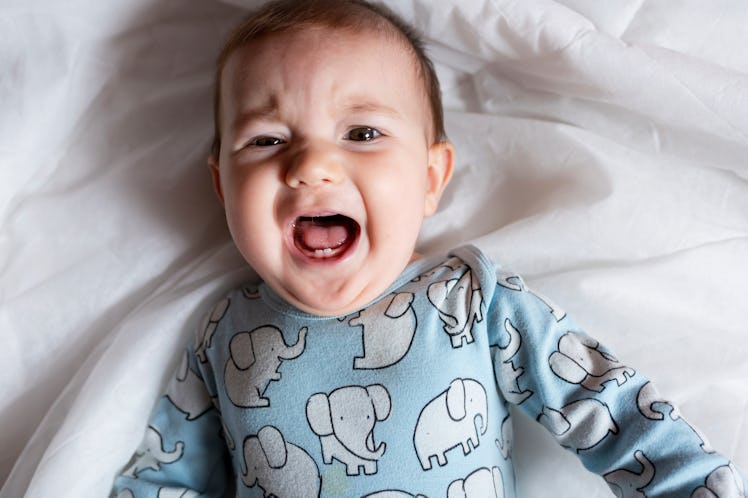Why Teething Pain Is Worse For Babies At Night
Everything hurts more when you're tired, but that's especially true for teething infants.

Teething pain is worse at night, pediatricians confirm, because children feel the symptoms of pain and discomfort most acutely when they have fewer distractions and are exhausted. It’s the same reason adults feel more chronic pain at night.
“Teething pain seems worse at night because infants are tired and have fewer reserves to deal with discomfort,” says physician Andy Bernstein, M.D. “Also, they don’t have the activities and fun of daytime to distract them when they’re winding down to get ready for bed.”
There’s evidence that pain and fatigue are intricately linked for most people — those with chronic pain tend to report fatigue, and those with chronic sleep problems tend to report pain. Scientists suspect this has something to do with how sleep deprivation releases excess cortisol and causes inflammation. Most of this research focuses on adults, but studies suggests infants process pain in much the same way as grownups.
Beyond the link between exhaustion and pain, studies have shown that children are less likely to perceive pain when they are distracted. Teething babies in bed have fewer stimuli to divert their attention to.
“For the same reason, it probably makes sense that everything hurts more when people of any age are tired,” Bernstein says.
There’s not much that can be done to help teething pain at night, unfortunately. A handful of products claim to make nighttime teething easier (most are ineffective, some legitimately dangerous). So the best thing parents can do for their babies is anticipate the pain increasing at night as diversions wind down. In doing this, parents can add a cold washcloth, rubbing their baby’s gums, and rocking them back to sleep into their regular evening routines, Bernstein says.
“The consistency of a regular routine gives kids a solid foundation on which to build their own coping mechanisms.”
This article was originally published on